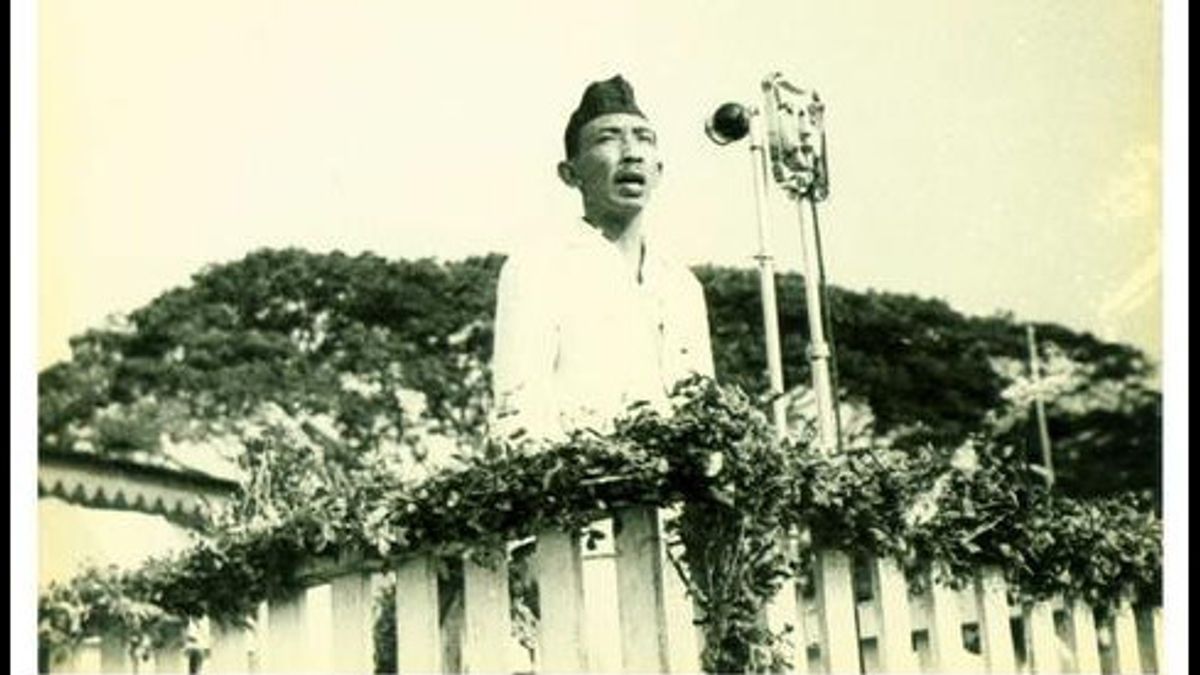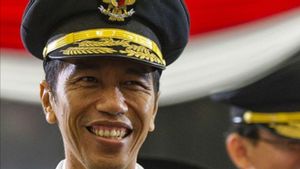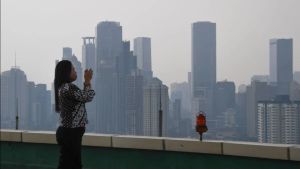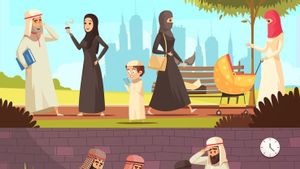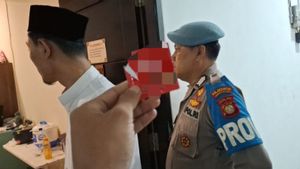JAKARTA History today, 93 years ago, June 25, 1930, the colonial government sentenced the pioneer of Indonesian independence, Iwa Kusumasumantri. The Dutch chose to isolate the warrior to Banda Neira. The exile was taken by the Dutch because Iwa was considered a radical and rebel.
Previously, Iwa was considered a freedom fighter who had a big role in the history of the nation. His actions against the Dutch were second to none. His criticism often disturbed the existence of the Dutch.
Iwa is one of the lucky ones. He was able to receive education in the era of the colonial government of the Dutch East Indies. In fact, parents have high aspirations. They hope that Iwa can become a praja pangreh (local officials).
He was also sent to school at the Opleiding School Voor Indlandsche Ambtenaren (OSVIA) in Bandung. However, Iwa felt that the school did not match him. He saw working with the Netherlands was something wrong. Colonizers need not be helped.
Iwa chose his own path. He chose to bring himself in as part of the Batavia Law College, Rechtshoogeschool (RHS). He feels comfortable studying at RHS. Because, he has many friends who have the same ideals: Indonesia is independent.
Iwa's movement to fight for Indonesia's independence is getting brighter in the Netherlands. There, he was friends with many other freedom fighters. Iwa joined the Indische Vereeniging which was later known as the Indonesian Association (PI).
The narrative of Indonesia's independence began to be voiced abroad through PI. The association continues to perpetuate propaganda related to Indonesian independence. He was then given a mandate by PI to study the unity front in the Soviet Union. A front that is good at managing matters of closing international ranks against colonialism.
There is a portrait of Bung Hatta in the Netherlands - young, 1920s. There is a portrait of Moh. Roem, also there. There is also Ali Sastroamidjojo. Ahmad Subardjo. Iwa Kusumasumantri, Sjahrir, and many more. Attached in historical books or personal memoirs, the portraits always describe the faces of the young, in neat clothes and all faces facing the lens, as well as the eyes that represent a strong young spirit.
Impressions that are always caught: intellectual life that is being trained, even though homerooms are from people's countries. And indeed, the Netherlands is the first stage for our students (the term of that time: students) who fought. There in 1908 it was formed by Indische Vereeniging, then became an Indonesische Vereeniging and finally the Indonesian Association in the Netherlands, the association that first propagated republic's independence," wrote Tempo Magazine's report entitled Indonesian Student Stories at LN(1981).
Iwa takes full advantage of knowledge from the Netherlands. The agenda disrupted the existence of the colonial government of the Dutch East Indies into its routine. His views and criticisms in various media were able to burn the Dutch anger.
He was later labeled radical. The Dutch also wanted to arrest him. They wanted Iwa's influence in the world of movement to be removed immediately. Iwa's isolation option was chosen. At its peak, Iwa was sentenced to exile to Banda Neira on June 25, 1930. There Iwa will meet other freedom fighters such as Tjipto Mangoenkoesoemo, Mohammad Hatta, and Sutan Sjahrir.
"Iwa returned to the country after 5.5 years of wandering in Europe. At first he worked in Bandung, but soon he was asked by his uncle to open a lawyer's office in Medan. In this city, Iwa is active in the movement by making newspapers and approaching workers and farmers who are oppressed."
As a result of this activity, June 25, 1930 Iwa was exiled to Banda Neira. He is accused of trying to overthrow legitimate power" (aanslag tot turnoverping van het wettig gezag). On this island, Iwa was finally isolated for more than 10 years," said Asvi Warman historian Adam in the book Revealing Historical Manipulation (2009).
The English, Chinese, Japanese, Arabic, and French versions are automatically generated by the AI. So there may still be inaccuracies in translating, please always see Indonesian as our main language. (system supported by DigitalSiber.id)
